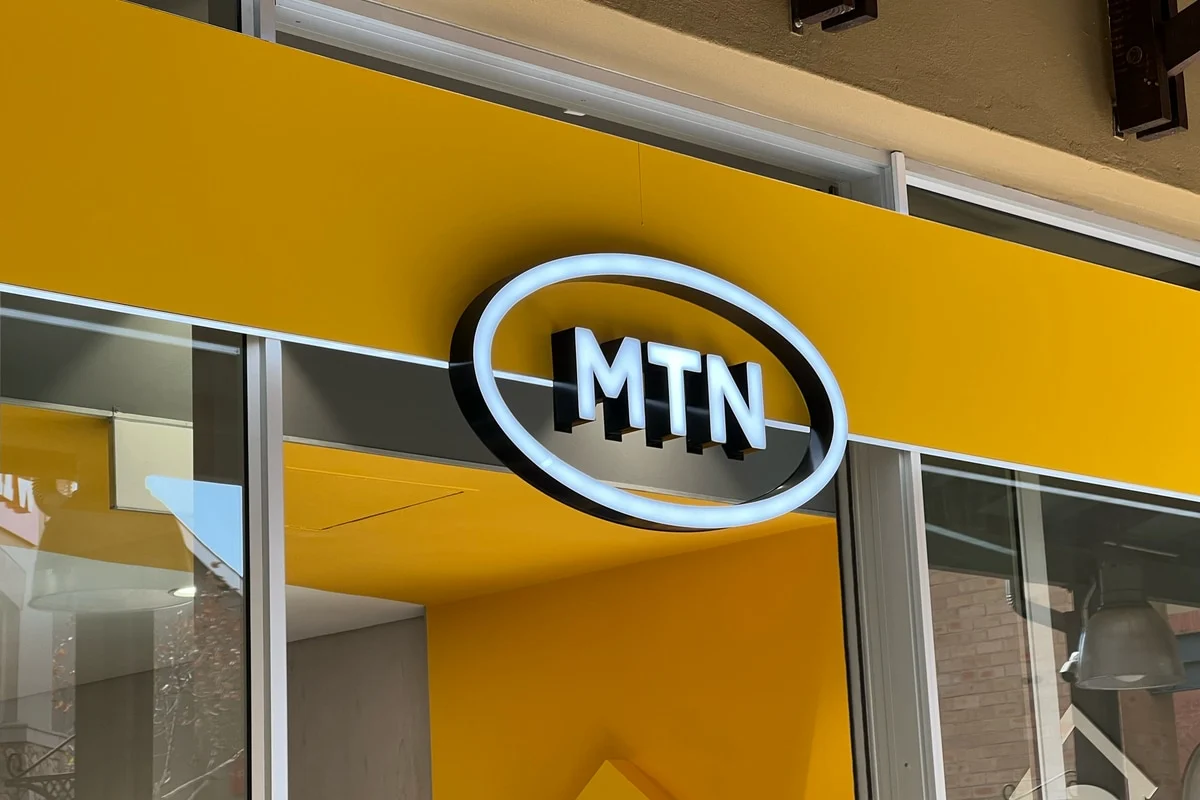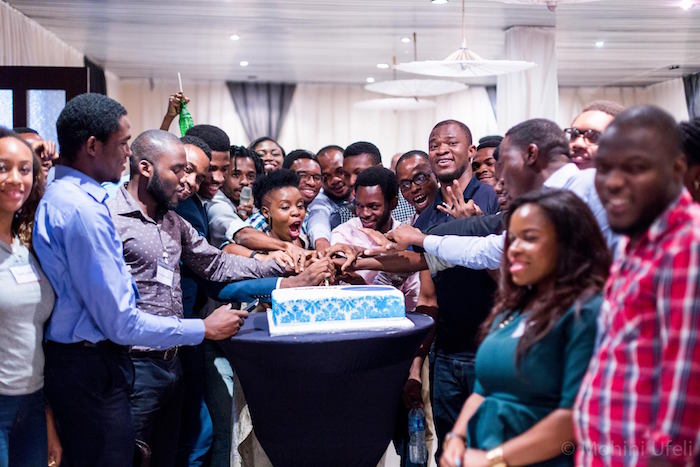Lagos is full of energy. You can almost bottle it. The startup scene is exciting. There are lots of young Nigerian entrepreneurs who see technology as a major tool for building the future they want to live in. I saw the city in a different light during my short visit in September. It was a different place from the one I grew up in and left more than 10 years ago.
In many areas, the changes are positive. Lagos has always been full of hope. It’s built on the collective dreams of people that have been migrating to the city from other parts of Nigeria since the 19th century. However, there is a newer trend in the aspirations of the people I met during my visit. There are armies of tech-savvy millennials who actually believe they can make their dreams come true, right now. And they are making a go at it. I had the opportunity to meet quite a few of them, and these are my learnings.
1. There is a fast-growing and vibrant startup ecosystem in Lagos
The startup scene in Lagos is young and really awesome. There are lots of exciting things happening in tech hubs concentrated around the Yaba area of the city. I had the opportunity to meet a few folks who are making the ecosystem work. People like Bosun Tijani of CCHub, Seyi Taylor of TechCabal, Iyin Aboyeji of Andela, Funbi Falayi of iDEA Hub, and many others that were gracious with their time. Getting behind the curtains with these guys gave me insight into Silicon Lagos; way beyond what I read on tech blogs. They really do seem to be turning stones to bread with few resources and limited cash.
The diaspora is at home
A lot has been written about the impact of Africans in the diaspora on the local economy. Much of it has been with the regards to money remittance sent home to families and friends. However, there is a new trend, one that is very obvious in the tech startup ecosystem. There is significant talent mobility of Nigerians moving back from the US and the UK to work and live in Nigeria.
And it’s not just people like me who initially left Nigeria to study and work abroad. There are those who have lived all their lives outside the continent, whose only link to Nigeria is that of their parents, but who nevertheless have a strong affinity to the country. I met quite a lot of these folks during my trip. Their patriotism is undiluted. They share similar hopes and dreams for the continent like other Nigerians. They bring with them knowledge and skills that are not commonly found locally. They start high-growth tech startups with drive, discipline and ambition similar to that of their colleagues in Silicon Valley and Shoreditch.
2. The shadow of e-commerce looms over everything
Given that the population of Nigeria has demonstrated significant demand for consumer products, it is natural for an average Nigerian tech entrepreneur to see value in building various versions of e-commerce companies. That opportunity is being validated through $millions of investment capital poured into prominent e-commerce startups like Jumia, Konga, Kaymu etc.
However, I think the ecosystem is being blindsided by the size of the opportunity in the B2C space. There are underserved markets elsewhere. Significant value can be created through B2B enterprise solutions that will create efficiencies to financial services, education, entertainment, government, politics, oil and gas, electricity, health and manufacturing. Real innovation lies outside the obvious solution. To attract the best tech talent, Nigerian tech entrepreneurs need to go for moonshot ideas, especially in areas that will bring enterprise capabilities closer to the masses.
3. Nigerian founders have the audacity to dream
With small and medium enterprises accounting for the majority of business, Nigeria is full of entrepreneurs by default. There are founders everywhere you look. And they seem to have a bold vision. Nigerians don’t have issues with dreaming big. There is a healthy dose of self-belief and audacity in most of the young founders I met. Everyone has strong faith that their startup is the next big thing with the real potential to change Nigerian future. They are full of energy. Their passion can almost make you overlook the naivety of their ambition.
The Nigerian future looks bright if a significant number of these founders have the resources and staying power to bring their vision to life.
4. But few startups have the required bandwidth and DNA to deliver a big hairy vision
Entrepreneurial exuberance is no replacement for experience. Raw talent is often not enough to scale an enterprise from nothing to millions of dollars in revenue. A lot of this kind of experience is lacking in the Nigerian tech startup ecosystem. And no wonder — the ecosystem has grown significantly in the last three years, but there are no significant exits yet.
The jury is still out on the headliner startups that have raised lots of cash. Little or no infrastructure exists yet to support a startup idea from bedroom to billion-dollar exit. There are few role models with stories and ambitions that make startups a better alternative to working in a bank, telcos, oil and gas or politics. No doubt, a stronger ecosystem will evolve. This will take time. And it will take a mix of spectacular successes and failures to get there.
5. Angels are rare
Fewer startups get access to the early stage funding they need to validate their business hypotheses. Local investors are either suspicious of non-brick and mortal businesses, don’t understand how startup funding works or would rather put their money in other proven business models such as real estate or government contracting. The local investment community has yet to embrace the startup culture. So, angel investors in Nigeria are as rare a sight as the religious moniker they derive their name from. There are horror stories about some angels wanting to take majority stakes in companies at very low valuations, and founders who have abused the required trust that makes the ecosystem work.
While the Lagos Angel Network is doing a great job in building a local investor ecosystem, most of the startup capital currently comes from Europe, US and South Africa. The venture capital play is still nascent, and there are lots of gaps in the investment food chain.
Yes, there’ll be outliers that will attract hundreds of millions in venture funding on the off-chance that they will be worth billions in the not-too-distant future, however, Nigerian startups may need to work on the premise of proving profitability ahead of scale. Whether this may stifle innovation and moonshot ideas is up for debate. I think sometimes founders have to settle for short-term profitability goals to stay alive when the capital that will enable them to scale into a disruptive force is not available. After all, not every startup should be venture-backed, and the San Franciscan model of disrupt-o-mania isn’t the only air a startup can breathe.
Putting my hat in the ring
I went to Lagos with a set of assumptions. Most of them were busted. I’m now convinced that the city is on the rise. There are opportunities for innovative products that will address numerous pain points and institutional gaps in the continent. Socio-economic development in Africa will be driven by entrepreneurs and innovations and not by politicians or charity aids.
The goal is not to build another Silicon Valley, and I find this exciting. Africa and Africans will need to create their own success stories. This will involve a healthy approach to risks, failures, transparency and honesty to learn and adapt. Some proven business models will have to be adapted and tweaked to African customers. Local investors will need to take leaps of faith in backing promising entrepreneurs with unproven business models.
Products have to be built, not just to take people out of poverty (which is incredibly noble) but for growing numbers of tech-savvy millennials. African startups can leverage on the growth of young, educated and middle-class demographics to create significant value for everyone. There are great opportunities for founders and investors and I want to be part of this journey.
Dotun Olowoporoku is the Founder of meals.co.uk and a Venture Partner at Potential.VC. He is currently working on Starta, a business support platform for startup and small business entrepreneurs in Africa.





















